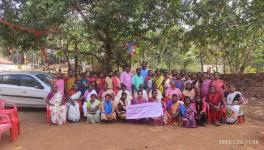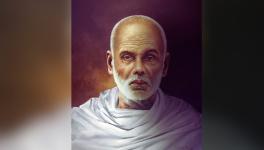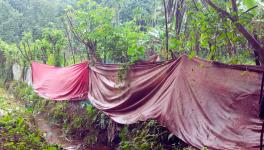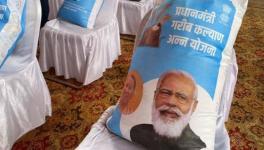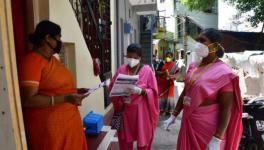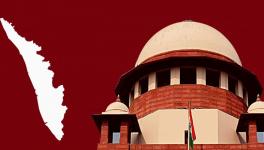Earlier Verdict on Sabarimala Valid, Yet Kerala Govt to Seek Further Clarity
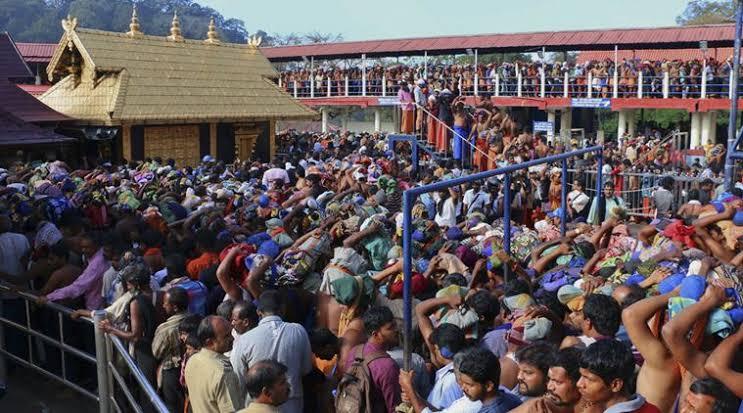
The Supreme Court on Thursday referred the Sabarimala review petitions to a larger seven-judge bench with 3:2 majority. The larger bench will re-examine various religious issues, including the entry of women into the Sabarimala temple and mosques and the practice of female genital mutilation in the Dawoodi Bohra community.
The majority of Chief Justice of India (CJI) Ranjan Gogoi, justices Khanwilkar and Indu Malhotra expressed that a larger bench should examine the issue whether the Court can interfere in essential practices of religion. While D.Y. Chandrachud and R.F. Nariman dissented.
“The debate about the constitutional validity of practices entailing into restriction of entry of women generally in the place of worship is not limited to this case, but also arises in respect of entry of Muslim women in a Durgah/Mosque as also in relation to Parsi women married to a non-Parsi into the holy fire place of an Agyari. There is yet another seminal issue pending for consideration in this court regarding the powers of the constitutional courts to tread on question as to whether a particular practice is essential to religion or is an integral of religion, in respect of female genital mutilation in Dawoodi Bohra community,” said Gogoi while pronouncing the judgement.
Sabarimala review, along with these matters, will be heard by a larger bench.
However, there is no stay on the September 28, 2018 judgement that allowed entry of women of all ages to the hilltop Sabarimala temple devoted to Lord Ayyappa in Pathanamthitta district of Kerala.
Reacting to the judgement, Pinarayi Vijayan, the chief minister of Kerala, said that the state government will seek more clarity on whether the decision of the Supreme Court last year remained operational against the backdrop of its latest ruling.
“As of now, we have learnt that Supreme Court’s earlier verdict is operational. But, more clarity is required in this matter and whatever the verdict is, the government will follow that,” said Vijayan.
Though the opposition parties in Kerala had staged violent protests after the September 28 judgement, the Communist Party of India (Marxist) or CPI(M)-led Left Democratic Front government followed the verdict of the apex court and gave protection to the women who wanted to visit the temple.
Justice Nariman, who read out the dissenting note on Thursday, observed that the issues of Parsi women and Muslim women were not before the Sabarimala bench and hence, the matter could not be tagged with these cases.
“Let every person remember that the “holy book” is the Constitution of India, and it is with this book in hand that the citizens of India march together as a nation, so that they may move forward in all spheres of human endeavour to achieve the great goals set out by this “Magna Carta” or Great Charter of India,” said Nariman.
Read More: For Half the Earth and Half the Sky: Remembering Women’s Struggles
The issues that have been referred to the larger bench are:
(i) Regarding the interplay between the freedom of religion under Articles 25 and 26 of the Constitution and other provisions in Part III, particularly Article 14.
(ii) What is the sweep of expression ‘public order, morality and health’ occurring in Article 25(1) of the Constitution.
(iii) The expression ‘morality’ or ‘constitutional morality’ has not been defined in the Constitution. Is it over arching morality in reference to preamble or limited to religious beliefs or faith. There is need to delineate the contours of that expression, lest it becomes subjective.
(iv) The extent to which the court can enquire into the issue of a particular practice is an integral part of the religion or religious practice of a particular religious denomination or should that be left exclusively to be determined by the head of the section of the religious group.
(v) What is the meaning of the expression ‘sections of Hindus’ appearing in Article 25(2)(b) of the Constitution.
(vi) Whether the “essential religious practices” of a religious denomination, or even a section thereof are afforded constitutional protection under Article 26.
(vii) What would be the permissible extent of judicial recognition to PILs in matters calling into question religious practices of a denomination or a section thereof at the instance of persons who do not belong to such religious denomination?
The larger bench may also consider it appropriate to decide all issues, including the question as to whether the Kerala Hindu Places of Public Worship (Authorisation of Entry) Rules, 1965 govern the temple in question at all. Whether the aforesaid consideration will require grant of a fresh opportunity to all interested parties may also have to be considered.
The decision came after as many as 65 petitions including 56 review petitions, four fresh writ petitions and five transfer pleas were filed since after the apex court verdict of September last year—which had sparked violent protests in Kerala.
The apex court, by a majority verdict of 4:1, on September 28, 2018, had lifted the ban that prevented women and girls between the age of 10 and 50 from entering the famous Ayyappa shrine in Kerala and held that the Hindu religious practice was illegal and unconstitutional. Kerala had witnessed violent protests mainly by RSS-BJP and other Hindutva outfits in the aftermath of the order. The main opposition Congress had also allied with them, protesting against the verdict.
Reactions from various political fronts and activists
Shortly after the apex court’s judgement on Thursday, State Devaswom Minister Kadakampally Surendran called for peace, adding that the verdict needs to be studied in detail.
“I request everybody, including the opposition not to indulge in any political exploitation of the issue like last year,” the minister said.
When asked if the stand of CPI(M) on the matter has changed, CPI(M) general secretary Sitaram Yechury said: “We have said whatever the SC decides, we will implement.”
“Since the apex court day had not stayed its September 28 judgement of last year allowing women of all age groups to offer prayers at the Sabarimala temple, that judgement continues to stand,” said Yechury, as he spoke with the reporters at Kozhikode.
“From what I can understand, the court has not stayed the earlier judgement. If they have not stayed the judgement, the verdict stands. We need to get more clarity on that part,” he added.
LDF convenor A Vijayaraghavan said that the UDF had earlier “exploited” apex court's September 28 verdict.
“The state government will make all efforts for the devotees to visit the shrine peacefully. The government’s primary objective is to maintain peace. When the verdict in the Ayodhya case came, people responded peacefully,” he said.
N Vasu, newly appointed chairman of Travancore Devaswom Board, a public-run temple board, who is scheduled to take charge of the office soon, said: “Even as there is no stay on the earlier judgement, it is a new situation now. The old verdict will now be studied by a new bench. We will contact our lawyers and study the judgement and discuss it with the board members before deciding on further actions.”
Leader of opposition party in the state Assembly, Ramesh Chennithala, told reporters: “This is a victory of the believers’ community. Congress was the only political party that had filed a review petition through Prayar Gopalakrishnan. Advocate A M Singhvi had appeared as counsel for us. We see this verdict as a vindication of the stand of the Congress and the UDF. Through this decision, the SC has upheld the sentiments of Ayyappa devotees.”
Read More: Pinarayi Vijayan Slams Sangh, Congress over Sabarimala
Echoing Chennithala's sentiments, senior BJP leader Kummanam Rajasekharan said: “All customs and practices existing at the Sabarimala temple should be continued. In the shadow of this verdict, if the government tries to get young women to enter the temple and create problems, the repercussions will be severe,” pointing to the possibility of violent protests in the coming days if women enter the temple.
Pandalam royal family member Sasikumar Varma—who was one of the petitioners—said the court has understood the feelings of the devotees and transferred the petitions to be reviewed by a seven-judge bench.
Head priest of the Sabarimala temple Kandararu Rajeevaru said that the apex court’s decision to refer the verdict to a seven-judge bench “gives hope”.
Describing the verdict as “victory of the devotees”, Union minister V Muraleedharan said that the apex court has understood the grievances related to Sabarimala darshan, the traditions
and the various methods of worship prevailing there.
Reacting to the verdict, Bindhu, who along with Kanakadurga, had trekked the holy hills and offered prayers at the shrine, scripting history on January 2, said the positive aspect of the order was that the court had not stayed the September 28 verdict.
“The Sangh Parivar which welcomed the Ayodhya verdict is bound to accept the SC verdict in this case also. The government and the police are also bound to help and protect those who want to visit the shrine,” she told the media.
Kanakadurga alleged that the decision to leave the matter to the seven-judge bench was “politically motivated”.
Sabarimala temple will be open from November 17 for the annual two-month-long pilgrimageseason.
Read More: Liberalism and Sabarimala: Why Shashi Tharoor is Wrong
(inputs from PTI)
Get the latest reports & analysis with people's perspective on Protests, movements & deep analytical videos, discussions of the current affairs in your Telegram app. Subscribe to NewsClick's Telegram channel & get Real-Time updates on stories, as they get published on our website.









